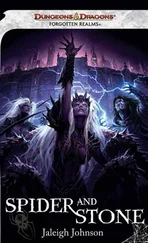“Come,” he said. “Thee be goin’ wi’ I into the fields. Thee be goin’ to learn a dancin’ trick or two. Show opens along of noon; and Master, he’s goin’ to let ’ee have Skipsy Jane’s spangles.”
How much of this the child understood it is impossible to say; but the old man’s tone was not threatening, and the idea of being taken away — somewhere — anywhere — roused vague hopes in her soul. She pulled the red shawl over her head and let him lead her by the hand.
Down the steps they clambered, and hurriedly threaded their way across the square.
The old man took the road towards Yeoborough, and turned with the girl up Dead Man’s Lane. He was but dimly acquainted with the neighbourhood; but once before, in his wanderings as a pedler, he had encamped in a certain grassy hollow bordering on the Auber Woods, and the memory of the seclusion of this spot drew him now.
As they passed Mr. Quincunx’s garden they encountered the solitary himself, who, in his sympathy with Luke Andersen on this particular day, had resolved to pay the young man an early morning visit.
The recluse looked with extreme and startled interest at this singular pair. The child’s beauty struck him with a shock that almost took his breath away. There was something about the haunting expression of her gaze as she turned it upon him that roused an overpowering flood of tenderness and pity in untouched abysses of his being.
There must have been some instantaneous reciprocity in the eccentric man’s grey eyes, for the young girl turned back after they had passed, and throwing the shawl away from her head, fixed upon him what seemed a deliberate and beseeching look of appeal.
Mr. Quincunx was so completely carried out of his normal self by this imploring look that he went so far as to answer its inarticulate prayer by a wave of his hand, and by a sign that indicated, — whether she understood it or not, — that he intended to render her assistance.
In his relations with Lacrima Mr. Quincunx was always remotely conscious that the girl’s character was stronger than his own, and — Pariah-like — this had the effect of lessening the emotion he felt towards her.
But now — in the look of the little Dolores — there was an appeal from a weakness and helplessness much more desperate than his own, — an appeal to him from the deepest gulfs of human dependence. The glance she had given him burned in his brain like a coal of white fire. It seemed to cry out to him from all the flotsam and jetsam, all the drift and wreckage of everything that had ever been drowned, submerged, and stranded, by the pitilessness of Life, since the foundation of the world.
The child’s look had indeed the same effect upon Mr. Quincunx that the look of his Master had upon the fear-stricken Apostle, in the hall of Caiaphas the high priest. In one heart-piercing stab it brought to his overpowered consciousness a vision of all the victims of cruelty who had ever cried aloud for help since the generations of men began their tragic journey.
Perhaps to all extremely sensitive natures of Mr. Quincunx’s type, a type of morbidly self-conscious weakness as well as sensitiveness, the electric stir produced by beauty and sex can only reach a culmination when the medium of its appearance approximates to the extreme limit of fragility and helplessness.
Hell itself, so to speak, had to display to him its span-long babes, before he could be aroused to descend and “harrow” it! But once roused in him, this latent spirit of the pitiful Son of Man became formidable, reckless, irresistible. The very absence in him of the usual weight of human solidity and “character” made him the more porous to this divine mood.
Anyone who watched him returning hastily to his cottage from the garden-gate would have been amazed by the change in his countenance. He looked and moved like a man under a blinding illumination. So must the citizen of Tarsus have looked, when he staggered into the streets of Damascus.
He literally ran into his kitchen, snatched up his hat and stick, poured a glass of milk down his throat, put a couple of biscuits into his pocket, and re-issued, ready for his strange pursuit. He hurried up the lane to the first gate that offered itself, and passing: into the field continued the chase on the further side of the hedge.
The old man evidently found the hill something of an effort, for it was not long before Mr. Quincunx overtook them.
He passed them by unremarked, and continued his advance along the hedgerow till he reached the summit of the ridge between Wild Pine and Seven Ashes. Here, concealed behind a clump of larches, he awaited their approach. To his surprise, they entered one of the fields on the opposite side of the road, and began walking across it.
Mr. Quincunx watched them. In a corner of the field they were crossing lay a spacious hollow, — once the bed of a pond, — but now quite dry and overgrown with moss and clover.
Old Flick’s instinct led him to this spot, as one well adapted to the purpose he had in mind, both by reason of its absolute seclusion and by reason of its smooth turf-floor.
Mr. Quincunx waited, till their two figures vanished into this declivity, and then he himself crossed the field in their track.
Having reached the mossy level of the vanished pond, — a place which seemed as though Nature herself had designed it with a view to his present intention, — Old Flick assumed a less friendly air towards his captive. A psychologist interested in searching out the obscure workings of derelict and submerged souls, would have come to the speedy conclusion as he watched the old man’s cadaverous face that the spirit which at present animated his corpse-like body was one that had little commiseration or compunction in it.
The young Dolores had not, it seemed, to deal at this moment with an ordinary human scoundrel, but with a faded image of humanity galvanized into life by some conscienceless Larva.
In proportion as this unearthly obsession grew upon Old Flick, his natural countenance grew more and more dilapidated and withered. Innumerable years seemed suddenly added to the burden he already carried. The lines of his face assumed a hideous and Egyptian immobility; only his eyes, as he turned them upon his companion, were no longer colourless.
“Doll,” said he, “now thee must try thee’s steps, or ’twill be the worse for thee!”
The girl only answered by flinging herself down on her knees before him, and pouring forth unintelligible supplications.
“No more o’ this,” cried the old man; “no more o’ this! I’ve got to learn ’ee to dance, — and learn ’ee to dance I will. Ye’ll have to go on them boards come noon, whether ’ee will or no!”
The child only clasped her hands more tightly together, and renewed her pleading.
It would have needed the genius of some supreme painter, and of such a painter in an hour of sheer insanity, to have done justice to the extraordinary expression that crossed the countenance of Old Flick at that moment. The outlines of his face seemed to waver and decompose. None but an artist who had, like the insatiable Leonardo, followed the very dead into their forlorn dissolution, could have indicated the setting of his eyes; and his eyes themselves, madness alone could have depicted.
With a sudden vicious jerk the old man snatched the shawl from the girl’s shoulders, flung it on the ground, and seizing her by the wrists pulled her up upon her feet.
“Dance, ye baggage!” he cried hoarsely;—“dance, I tell ee!”
It was plain that the luckless waif understood clearly enough now what was required of her, and it was also plain that she recognized that the moment for supplication had gone by. She stepped back a pace or two upon the smooth turf, and slipping off her unlaced shoes, — shoes far too large for her small feet, — she passed the back of her hand quickly across her eyes, shook her hair away from her forehead, and began a slow, pathetic little dance.
Читать дальше












